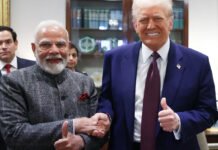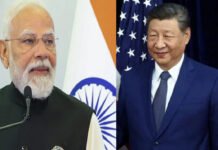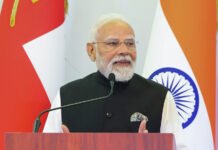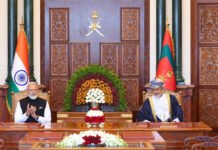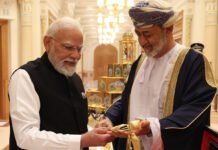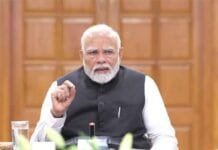The recent debate at the United Nations Security Council (UNSC) brought into sharp focus the glaring hypocrisy and double standards employed by Pakistan regarding terrorism and the quest for international peace. India’s Permanent Representative to the UN, Ambassador P. Harish, delivered a firm and unambiguous rebuke to Pakistan’s repeated attempts to manipulate global discourse for its own agenda, particularly concerning Kashmir and the Indus Water Treaty (IWT).
This article delves deeply into the key elements of Ambassador Harish’s statement, the context of Pakistan’s reprehensible behavior, and the larger geopolitical implications. We present a detailed analysis that underscores India’s unyielding stance on sovereignty and peace while exposing Pakistan’s flawed narrative in the international arena.
India’s Unshakable Stance on Jammu and Kashmir’s Sovereignty
At the heart of the UNSC debate was the persistent issue of Jammu and Kashmir, a subject Pakistan incessantly tries to internationalize despite the clear legal and historical reality: Jammu and Kashmir is an integral part of India. Ambassador P. Harish reiterated this fundamental fact without equivocation. Any attempt to question or undermine India’s sovereignty over Jammu and Kashmir was categorically rejected.
This resolute position reflects India’s commitment to national integrity and territorial sovereignty. The repeated provocations by Pakistan, whether through diplomatic channels or cross-border terrorism, have been met with firm resistance. India’s stance at the UNSC reinforced that the country will not tolerate any form of external interference, particularly from Pakistan, whose motives remain dubious and self-serving.
Pakistan’s Habitual Use of Kashmir and Indus Water Treaty as Political Tools
Ambassador Harish highlighted Pakistan’s tendency to raise the Kashmir issue and the Indus Water Treaty during international forums, particularly the UN Security Council, as a habitual diplomatic maneuver. Pakistan’s strategy involves portraying itself as a victim while deflecting attention from its support for terrorism and cross-border infiltration.
The Indus Water Treaty, a critical bilateral agreement that has survived numerous conflicts, has been weaponized by Pakistan as a point of contention, despite it being a landmark in international water-sharing arrangements. By dragging this treaty into political debates, Pakistan attempts to create a false narrative of victimhood and grievance, which Ambassador Harish sharply criticized as a distraction from Pakistan’s destabilizing actions.
Unmasking Pakistan’s Double Standards on Terrorism
A core theme of the debate was Pakistan’s blatant double standards regarding terrorism. Ambassador Harish exposed how Pakistan routinely condemns terrorism in rhetoric but continues to provide safe havens, logistical support, and training to terrorist groups that operate in India and beyond.
This duplicity severely undermines Pakistan’s credibility on the global stage. While Pakistan seeks to present itself as a responsible actor committed to peace, its consistent involvement in sponsoring terror activities betrays a contradictory reality.
India’s Permanent Representative condemned this behavior as “reprehensible,” underscoring the need for the international community to recognize and address Pakistan’s role in perpetuating terrorism rather than entertaining its attempts to portray itself as a victim.
Diplomatic Brilliance: India’s Response at the UNSC Debate
The high-level open debate at the UN Security Council, focusing on promoting international peace and security through multilateralism and peaceful dispute resolution, became a platform where Ambassador P. Harish masterfully dismantled Pakistan’s narrative in under five minutes.
While Pakistan’s Deputy Prime Minister and Foreign Minister Ishaq Dar chose to comment on Kashmir, Ambassador Harish’s rebuttal was clear, concise, and unyielding. He showcased India’s diplomatic maturity, emphasizing peaceful resolution while refusing to concede any ground on matters of sovereignty and territorial integrity.
This strategic communication not only reinforced India’s position but also served as a wake-up call to the global community regarding the realities of Pakistan’s policies and actions.
The Broader Geopolitical Implications
Pakistan’s persistent attempts to internationalize Kashmir and manipulate treaties like the Indus Water Treaty threaten regional stability. The UNSC platform was meant to discuss peace, yet Pakistan chose to push divisive narratives that exacerbate tensions.
India’s forceful response signals a robust shift in global diplomacy, where truth and facts take precedence over fabricated victimhood. This stance helps isolate Pakistan diplomatically and encourages the international community to scrutinize its long-standing involvement in terrorism and destabilization.
The UNSC debate also reiterates India’s unwavering commitment to the rule of law, peaceful dispute resolution, and international cooperation, marking a significant moment in India’s diplomatic journey on the world stage.
Pakistan’s Hypocrisy: A Barrier to Lasting Peace
The contradiction between Pakistan’s public statements and its covert activities epitomizes hypocrisy. On one hand, it claims to promote peace and security; on the other, it perpetuates violence and unrest.
This behavior hinders any genuine progress toward peace in South Asia. India’s Permanent Representative’s call for Pakistan to abandon its duplicitous tactics and genuinely commit to peace resonates with the global community’s desire for stability.
Until Pakistan confronts and corrects its own role in fostering terrorism, any dialogue or negotiations will remain fraught with mistrust and insincerity.
Conclusion: Upholding Sovereignty and Demanding Accountability
The UNSC debate was more than a diplomatic exchange; it was a clear assertion of India’s sovereign rights and a call for accountability from Pakistan. Ambassador P. Harish’s remarks effectively exposed Pakistan’s double standards and undermined its credibility on the global stage.
India stands firm in its resolve that Jammu and Kashmir will always be an integral part of the nation. The international community must recognize the dangers posed by Pakistan’s reckless diplomacy and its covert sponsorship of terrorism.
Only through truthful dialogue and Pakistan’s genuine renunciation of terror tactics can lasting peace and stability be achieved in the region.
This moment at the United Nations reinforces the strength and clarity of India’s global diplomatic voice. It underscores the country’s commitment to peace, sovereignty, and justice — and calls upon the world to look beyond Pakistan’s façade to the troubling realities beneath.



